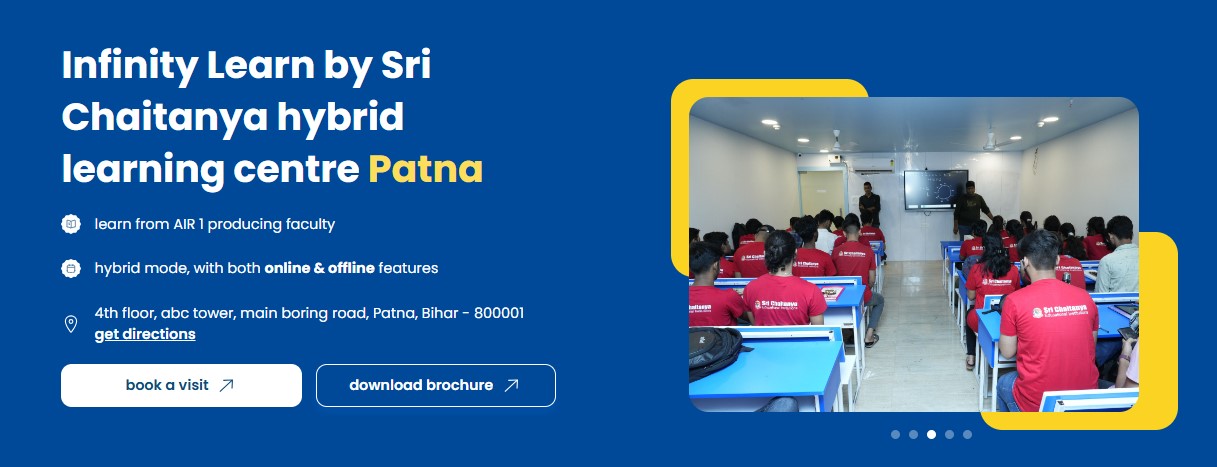Table of Contents
Class 11 Physics can be both exciting and challenging for students. Understanding the class 11 physics chapters is essential for building a strong foundation in the subject. Some chapters are easier to grasp, while others may be considered the toughest chapter in physics class 11. In this guide, we will explore which chapters are typically seen as the easiest and which ones present more difficulties.
By identifying these chapters, students can focus their study efforts more effectively and develop strategies to tackle the tougher concepts. Whether you are preparing for exams or trying to improve your understanding of physics, knowing the challenges ahead can help you succeed in your physics class 11 journey. Let’s dive in and discover the chapters that will shape your learning experience!
Unit and Chapter wise Class 11 Physics Chapters
Below the table provides a comprehensive overview of the Class 11 Physics syllabus, highlighting the chapter names, corresponding units, and their approximate marks weightage. It covers essential topics like Kinematics, Thermodynamics, and Oscillations, making it a useful guide for students to prioritize their study efforts based on the significance of each chapter in their exams.
| Chapter No. | Chapter Name | Units | Marks Weight-age |
| 1 | Physical World | Units and Measurements | 2-3 |
| 2 | Units and Measurements | Units and Measurements | 2-3 |
| 3 | Motion in a Straight Line | Kinematics | 4-5 |
| 4 | Motion in a Plane | Kinematics | 4-5 |
| 5 | Laws of Motion | Laws of Motion | 4-5 |
| 6 | Work, Energy, and Power | Work, Energy, and Power | 4-5 |
| 7 | System of Particles and Rotational Motion | Rotational Motion | 6-7 |
| 8 | Gravitation | Gravitation | 4-5 |
| 9 | Mechanical Properties of Solids | Properties of Matter | 3-4 |
| 10 | Mechanical Properties of Fluids | Properties of Matter | 3-4 |
| 11 | Thermal Properties of Matter | Thermodynamics | 4-5 |
| 12 | Thermodynamics | Thermodynamics | 6-7 |
| 13 | Kinetic Theory | Kinetic Theory of Gases | 4-5 |
| 14 | Oscillations | Oscillations | 4-5 |
| 15 | Waves | Waves | 4-5 |

Toughest and Easiest Chapters in CBSE Class 11 Physics
Here, we discuss the five toughest and easiest chapters in CBSE Class 11 Physics.
5 Toughest Chapters in CBSE Class 11 Physics
- Rotational Motion: This chapter deals with the study of rotational dynamics, torque, moment of inertia, and angular momentum. It’s challenging because it introduces new concepts like rotational kinetic energy and rolling motion, which require a solid understanding of basic physics principles.
- Thermal Properties of Matter: This chapter covers topics such as heat transfer, specific heat capacity, and thermal expansion. It’s considered tough because it involves intricate calculations and requires a deep understanding of thermodynamics concepts.
- Mechanical Properties of Solids: This chapter focuses on the behavior of solids under various mechanical stresses like tension, compression, and shear. Understanding concepts like Hooke’s law, stress-strain curves, and elastic moduli can be challenging for students.
- Waves: The study of waves, including types of waves, wave motion, and wave optics, can be difficult for some students. This chapter requires a grasp of mathematical concepts like wave equations and interference patterns, making it one of the tougher topics in Class 11 Physics.
- Kinetic Theory of Gases and Thermodynamics: This chapter deals with the behavior of gases at the microscopic level and introduces thermodynamic principles like laws of thermodynamics, heat engines, and entropy. It’s challenging due to the abstract nature of kinetic theory and the complex calculations involved in thermodynamics problems. Understanding the relationship between temperature, pressure, and volume can be particularly challenging for students.
5 Easiest Chapters in CBSE Class 11 Physics
- Units and Measurements: This chapter deals with the fundamental concepts of measurement, units, and dimensions. It introduces students to various systems of units, such as the SI system, and teaches them how to perform basic conversions. Understanding this chapter lays a strong foundation for tackling more complex topics in physics.
- Motion in a Straight Line: This chapter focuses on the basic concepts of motion along a straight path. Students learn about different types of motion, such as uniform and non-uniform motion, and study related topics like displacement, velocity, and acceleration. It forms the basis for understanding more intricate motion concepts in later chapters.
- Laws of Motion: This chapter introduces students to Newton’s three laws of motion and explores their applications in various scenarios. Understanding these laws is essential for comprehending the dynamics of objects and systems in physics.
- Work, Energy, and Power: This chapter deals into the concepts of work, energy, and power, which are fundamental to understanding the behavior of physical systems. Students learn about different forms of energy, such as kinetic and potential energy, and how they relate to work and power. Mastering this chapter is crucial for solving problems related to mechanical work and energy transformations.
- Gravitation: Gravitation is a fundamental force that governs the motion of celestial bodies and objects on Earth. In this chapter, students study about the Newton’s law of universal gravitation and its applications, such as orbital motion and gravitational potential energy. Understanding the principles of gravitation is essential for comprehending phenomena like planetary motion and satellite dynamics.
Also Read: Toughest and Easiest Chapters in Class 11 Chemistry
How to Score Good Marks in Physics Class 11 CBSE 2024?
- Understand the Concepts: Focus on understanding the concepts rather than rote memorization.
- Practice Regularly: Solve NCERT exercises and additional questions from reference books to strengthen your understanding.
- Use NCERT Solutions: Refer to NCERT Physics Class 11 solutions for clarity on concepts and to practice different types of questions.
- Study the Syllabus: Familiarize yourself with the Class 11 Chemistry syllabus 2024-25 to know which chapters are included in your exams.
- Use Exemplar Books: NCERT Exemplar Class 11 Physics books provide additional practice questions and are beneficial for concept reinforcement.
- Use the NCERT Book: Class 11 physics NCERT book is the best resource for CBSE exams. Make sure to read it thoroughly.
Also Check: 5 Toughest and Easiest Chapters in CBSE Class 11 Maths
NCERT Solutions for Class 11
- NCERT Solutions for Class 11 Maths
- NCERT Solutions for Class 11 Chemistry
- NCERT Solutions for Class 11 Biology
Frequently Asked Questions (FAQs)
Which is the hardest chapter in class 11 physics?
Rotational Motion, Waves, Thermodynamics, System of Particles and Rotational Motion and Gravitation are the hardest chapter in class 11 physics.
Is class 11 physics easy?
Physics is seen as a subject where you can score well in Class 11. But, let's be honest, grasping physics concepts isn't simple. Many students struggle a lot to understand the basics of physics.
Is 11th physics tough?
Class 11 Physics is tough because it's full of tough ideas, tricky formulas, and problems that even Einstein might find challenging. We cover everything from waves and optics to magnetism and electricity, making it an interesting but tough journey.
Is 11 physics tougher than 12?
Physics in class 12 is simpler compared to class 11. In class 11, you have to grasp various concepts like mechanics and waves. However, in class 12 physics, you mainly need to remember formulas, making it easier to solve numerical problems. Electric current plays a significant role in 12th-grade physics.











